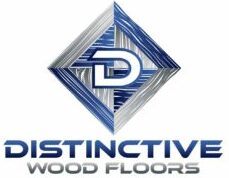Quality Counts
A vast majority of talented wood flooring installers likely have a story about installing a floor with substandard milling. If you look through the installation instructions of the National Wood Flooring Association, you will see the phrase “installation constitutes acceptance”. This is basically a loophole manufacturers can use to wash their hands of any issues related to the installation of their product.
Prior to fastening a floor, an installer should inspect and “rack” or dry fit a floor. During the racking process any defects on the product are to be determined and reported prior to installation. The trouble is that not everything that is defective about a product is evident to an installer before or during the installation process. Most problems that develop in a floor, especially engineered flooring, tend to develop over several months.
Let me stop for a second and say that most products and most situations are all likely to work out. This post is not meant to be informational and not alarmist in nature. What is troublesome is when a wood flooring problem develops and creates a nightmare in your home. How do you deal with it? Who is liable”?
Discussing how to assign liability and it doesn’t matter to me. What’s important to me is discussing how to avoid wood flooring problems by choosing a high quality manufacturer of wood flooring. In some circumstances you may default to the contractor to source the material or you may choose to purchase from a retailer. In most cases with retailers, they will recommend and installer or subcontract them to install your floor.
Remember the phrase, “Installation constitutes acceptance”?
Milling defects with wood flooring may not be evident to every installer. Some installers may not even inspect the flooring closely prior to installation. The odds that you will identify a flooring defect while you are at work and your floor is being installed are even lower.
I hope at this point you can see my logic…You have to purchase reputable products from reputable sources.
What is a reputable product?
As you may or may not know, we are big fans of solid hardwood flooring and some engineered flooring as long at the wear layer is significant. The wear layer of a product determines how long the product can be serviced by wood floor refinishing or other maintenance. A great number of products being sold at retailers are mostly plywood with 1/8″ of wood veneer attached or less. The products are unable to be sanded and are for all intents and purposes, single use products.
Warranties…Yes they are somewhat helpful until you read the fine print. I will admit that many factories finished hardwood floors have an exceptionally tough finish that does not scratch very easily. Many people associate tough finish as a measure of hardness and durability for a wood floor. The reality is that engineered flooring is a combination mostly of softer plywood material. When something heavy is dropped on a thin engineered floor, the dent will telegraph through to the plywood.
Who is a reputable source?
Most consumers deciding on what material to purchase and then finding a wood floor installer. Contrary to this, I suggest that you find a wood flooring contractor before or during the process of buying a floor. General guidance on finding a good product by an honest contractor will go a long way. Asking your wood flooring installer for material recommendations is the same as asking a great mechanic which car to buy.
Few consumers realize that most wood floor contractors are able to purchase wood flooring from wholesale distributors at a cost that rivals most retailers. Most wholesale distributors only sell to professionals, but they will allow showroom access so you can see a variety of products.
There are situations where purchasing from a flooring retailer or carpet store may be necessary. Some manufacturers will sell only to specific retailers directly. In these cases, it’s a good idea to work with retailers who are local to the area. Larger chain retailers often sell their own private labeled products in order to secure the supply chain for maximum profit.
The Essentials
- Research your manufacturers and their products. The wear layer is key for value.
- Your wood flooring installer can provide flooring material for your project.
- Consider finding your contractor before any flooring purchases.
- Buy local where your dollars matter.




